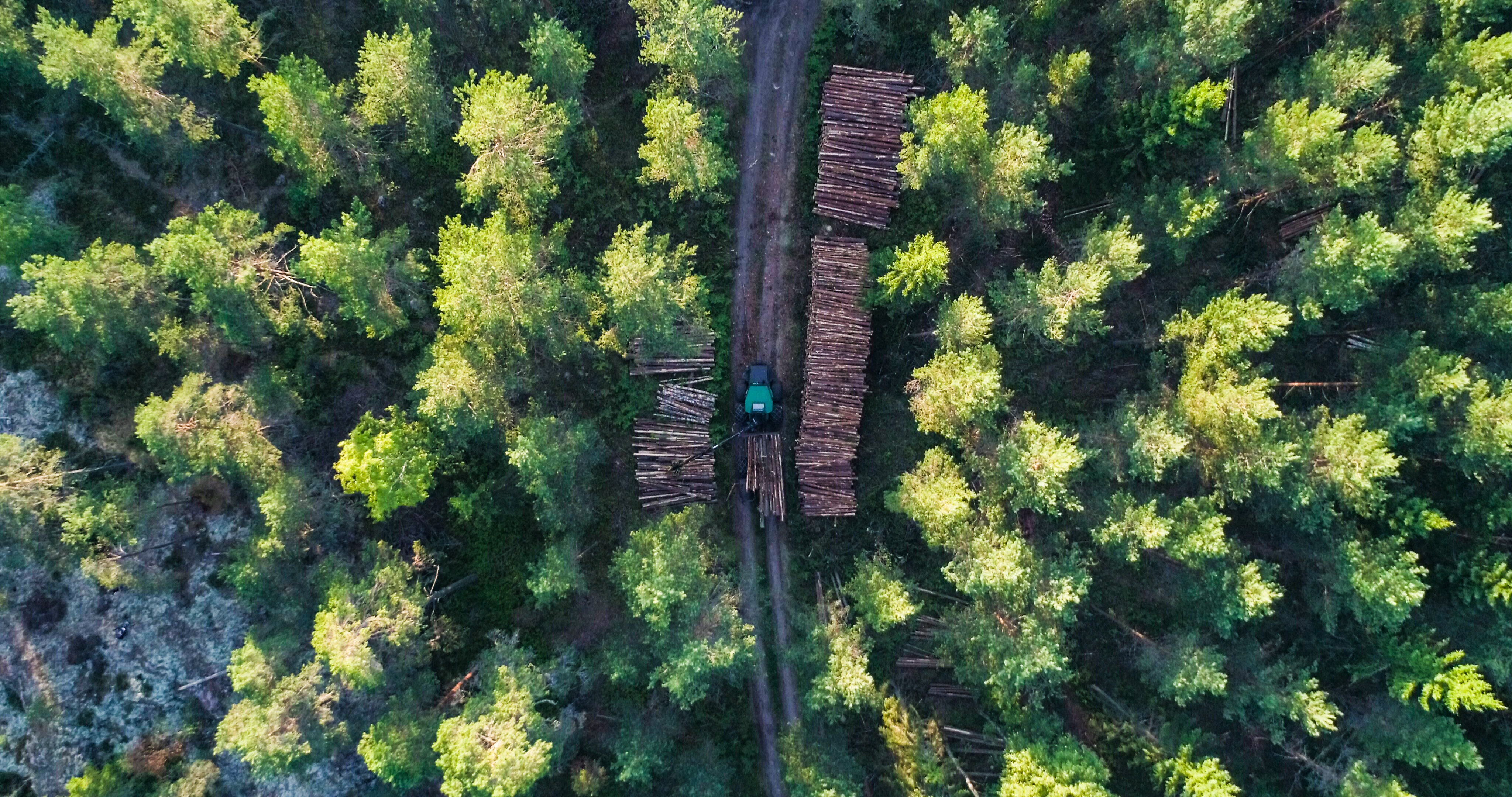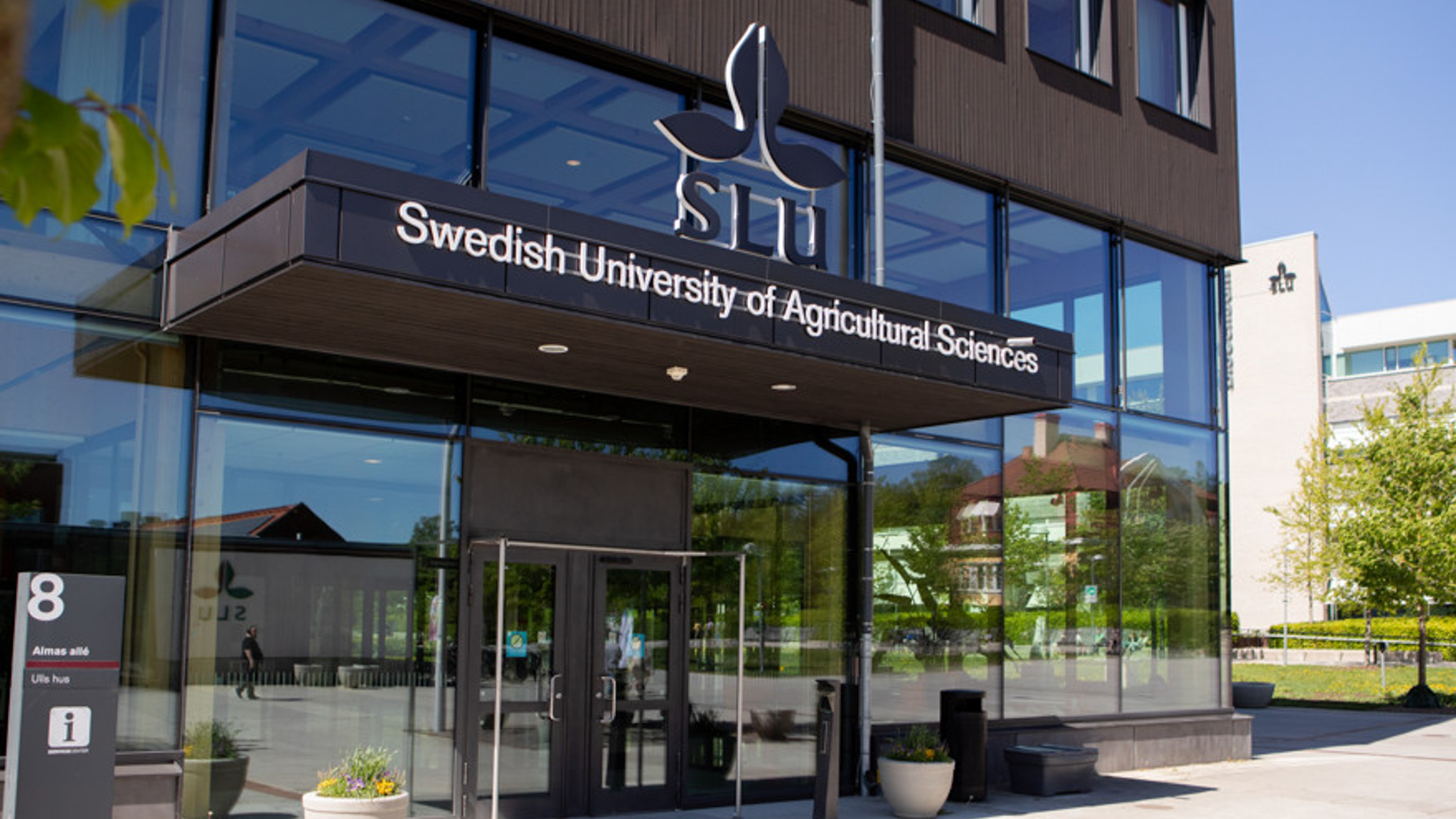This Master’s programme prepares you for managing the wood supply chain from forest to industry. It provides hands-on training, theoretical analysis and insight from leading sector experts for both on-site and digital management of raw materials and operations for sustainable bio-based industries.
Industrial Wood Supply Management
MSC IN FORESTRY SCIENCE
Programme information
The forest sector is quickly developing towards a wider portfolio of final products for new markets. From solid wood- to nano-cellulose-based products, the management of raw material supply is dynamic and demanding. Changing climate and markets requires agility and collaboration along the entire supply chain.
In this programme you will learn how to master and develop management of industrial wood supply; raw materials requirements for new industrial processes, supply strategy and systems, and operational management of these systems. Having mastered these core courses, the capstone course involves interactive case studies developing sustainable wood supply strategies for forest industries competing in Swedish geographies. All this while working under different scenarios for increased energy efficiency and environmental sustainability.
The pedagogical approach for the master's programme is simple. We start with hands-on laboratory and computer exercises which give the basic understanding of industrial and supply processes. After this we continue with theoretical studies to build the insight required for new challenges. After you have both practical understanding and theoretical insight, your learning is topped-off by top-level guest lectures from the sponsor forest companies.
Digitalization is an integral component of wood supply management because of the large volumes in wood tracking and trading. The programme provides training in both todays state-of-the-art business system solutions as well as use of innovations from machine sensor technology and remote sensing from satellite sources.
This programme is designed to train you for both national and international duties in wood supply management.
Facts and requirements
Content
The programme comprises four core courses, each worth 15 ECTS credits. The first three courses, namely raw material requirements, supply strategy, and operations management, are offered during the first year. The first year concludes with 15 credits of elective courses, such as GIS.
In the second year, the programme starts with 15 credits in remote sensing before progressing to the final core course, competitive wood supply. The programme culminates with the completion of a master's thesis. It is worth noting that most of the master's thesis projects are sponsored by companies.
Welcome to SLU Campus Umeå
Career
The programme is designed to prepare students for entry-level jobs and equip them with the necessary skills to become upper-level managers and staff specialists in national and international wood supply organizations.
During the summer holidays between year one and year two of the programme, many of our students work as temporary production or logistics managers. The programme is developed in collaboration with major forest companies in the Swedish forest sector to ensure that training is focused on the skills and abilities required in the current job market.
Degree awarded
Degree of Master of Science (120 credits) with a Major in Forestry Science.
Syllabus
Student life
Student life
Studying at SLU is not just about attending lectures and seminars. It’s also about newfound friends, sports, fun parties, and exciting experiences. It’s about creating memories that will last a lifetime.

Let’s connect on Instagram!
Are you curious about life at SLU? Follow our students on Instagram.

Chat with our students
Connect with our international student ambassadors and explore their blogs for a firsthand glimpse into their journeys as students in Sweden and at SLU.

How to apply
Sweden's unique application system makes it possible to apply for programmes and courses at different universities on the same application.

Fees and scholarships
Who has to pay application and tuition fees? What is the cost of living in Sweden? Read more about these and other questions regarding tuition fees and scholarships.

The Swedish Way
Are you on your way to Sweden and wondering what it’s like to study here? Well, get ready to question the way things have always been done. Studying in Sweden comes with critical thinking, freedom and responsibility.